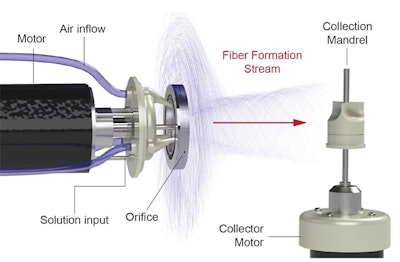
According to a recent Medgadget article, a team at Harvard University has developed a technique called "Focused Rotary Jet Spinning" to create biomaterial heart valves in just minutes. The method involves directing polymer strands onto a heart valve-shaped frame using jets of air. The result is a porous scaffold that supports the growth of cardiac cells. The scaffolds contain nanoscale cues that attract cells, aiming for the biomaterial scaffold to be gradually replaced by cells, leading to a regenerated heart valve. The rapid and precise approach offers advantages in terms of speed and spatial fidelity compared to traditional methods of creating biomaterial scaffolds.






















